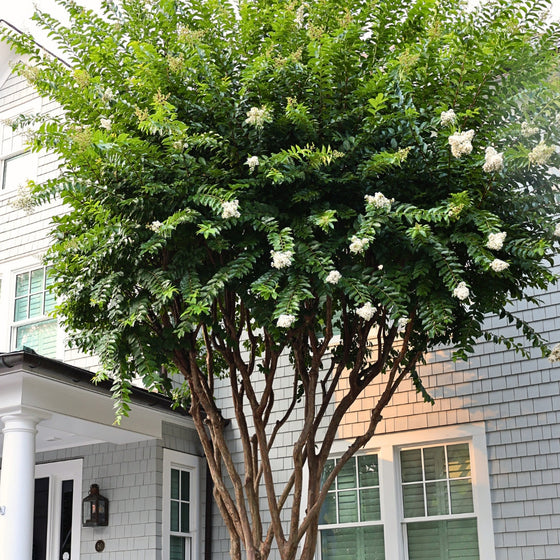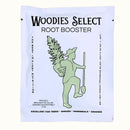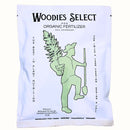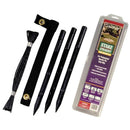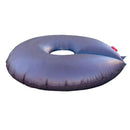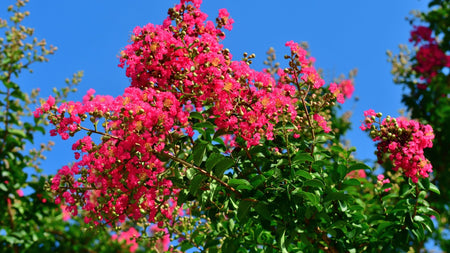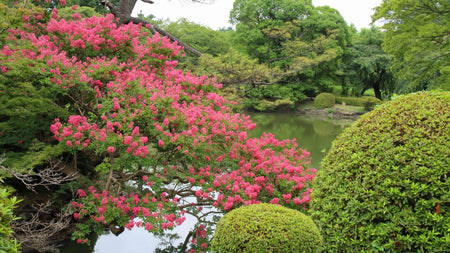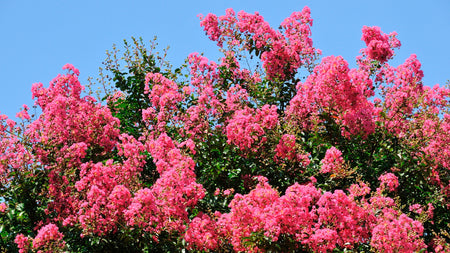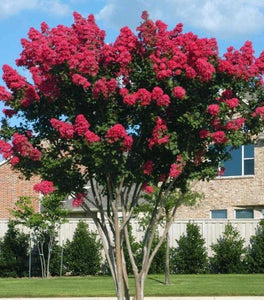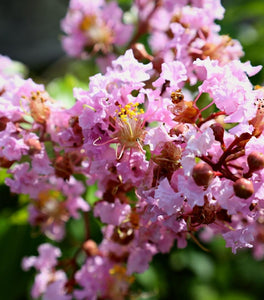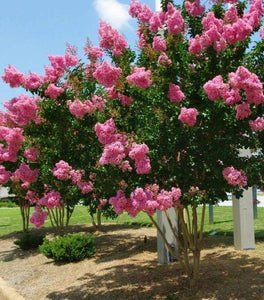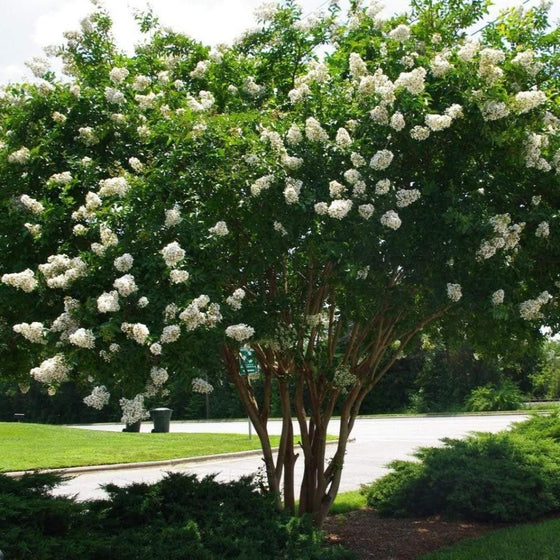
Images Depict Mature Plants
Natchez Crape Myrtle – Fast-Growing White Flowering Tree with Cinnamon Bark
A Southern classic with year-round beauty.
The Natchez Crape Myrtle (Lagerstroemia indica × fauriei ‘Natchez’) is one of the most beloved flowering trees for landscapes across the South and Mid-Atlantic. Known for its clouds of pure white blooms, smooth cinnamon-brown bark, and graceful shape, it delivers color and texture all year long. Blooming from mid-summer into early fall, the Natchez provides up to 100 days of nonstop flowers, adding elegance and curb appeal to any property.
Fast-growing and easy to maintain.
This fast-growing Crape Myrtle tree reaches 20 to 30 feet in height and 20 feet in width, forming a stately, vase-shaped canopy that’s perfect for driveways, front yards, and open landscapes. It’s prized for its drought tolerance, disease resistance, and adaptability to a wide range of soils. Whether you’re in the heat of Texas or the mild Mid-Atlantic, the Natchez thrives in full sun and well-drained soil, rewarding you with abundant blooms and exfoliating bark that peels to reveal rich cinnamon and tan tones underneath.
A long-lasting performer for large landscapes.
In autumn, the Natchez Crape Myrtle transitions to vibrant orange-red foliage, providing stunning fall color before dropping its leaves for winter. Even in the off-season, its smooth, sculptural bark adds interest to the landscape. The Lagerstroemia fauriei parentage confers superior resistance to powdery mildew, a common issue in Crape Myrtles, making it a low-maintenance, long-lived tree suitable for both homeowners and commercial plantings.
The perfect blend of strength, elegance, and color.
Plant Natchez Crape Myrtle as a standalone specimen, grouped alley, or flowering privacy screen. Its fast growth and stunning year-round appearance make it a landscaper favorite. Hardy in USDA Zones 6–10, this dependable variety offers all-season appeal — white blooms in summer, fiery foliage in fall, smooth bark in winter, and lush green leaves in spring.
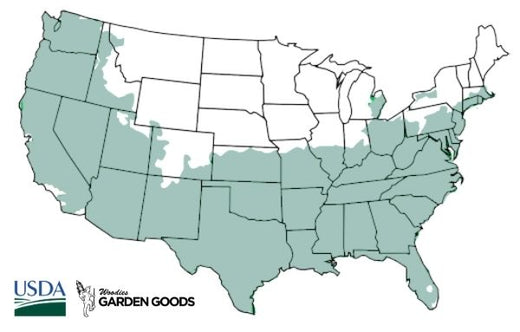
| Hardiness Zone: | 6-9 |
|---|---|
| Mature Height: | 20 to 30 feet |
| Mature Width: | 15 to 20 feet |
| Classification: | Tree form large (20 feet or more) |
| Sunlight: | Full sun |
| Habit: | Deciduous, densely branched, multi-stemmed habit |
| Flower Color: | Pure white flowers in mid to late summer through the first frost |
| Foliage: | New growth emerges a rich glossy green, changing to a equally vibrant orange-red in the fall |
| Soil Condition: | Any well drained soil |
| Water Requirements: | Water well until established |
| Uses: | Extremely attractive when used as a focal point in the mixed border, mass planting, or a specimen planting |
How to Care for Natchez Crape Myrtle
Read the care instructions to ensure your Natchez Crape Myrtle Trees are happy and healthy for years to come.
How do I plant a Natchez Crape Myrtle?
Choose a sunny location with well-drained soil, as Natchez Crape Myrtle loves warmth and full light. Dig a hole twice the width of the root ball but no deeper, ensuring the top of the root ball sits level with the surrounding soil. Backfill with a mixture of native soil and compost, water thoroughly, and apply a 2–3 inch layer of mulch to help retain moisture and regulate soil temperature. Avoid planting too deeply — shallow planting encourages stronger root growth and faster establishment.
How often should I water my Natchez Crape Myrtle?
Water deeply once or twice a week during the first growing season to help the roots establish. Once mature, Natchez is highly drought tolerant and only needs supplemental watering during prolonged dry periods. Avoid overwatering or standing water around the roots, which can cause stress or fungal problems. A good soak is better than frequent shallow watering — this encourages deep root development and greater drought resistance.
When and how should I fertilize a Natchez Crape Myrtle?
Fertilize in early spring before new growth begins using a slow-release, balanced fertilizer (10-10-10). For young trees, a light mid-summer feeding can encourage stronger blooming and growth. Avoid excessive nitrogen, which can promote leaf growth at the expense of flowers. If you’ve prepared the planting area with compost, your Natchez will thrive with minimal fertilization after its first year.

How and when should I prune a Natchez Crape Myrtle?
Prune in late winter or very early spring before new growth appears. Remove any crossing, weak, or dead branches to improve airflow and structure. Never “top” your Crape Myrtle — this common mistake, called Crape Murder, weakens the tree and ruins its natural shape. Instead, focus on thinning out interior growth and shaping the canopy for a balanced, vase-like form. Proper pruning enhances blooming and showcases the tree’s attractive bark.

